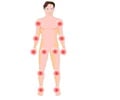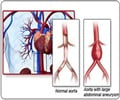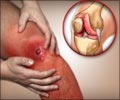Internet-based health education and self-management program improved health-related quality of life for teens with juvenile idiopathic arthritis.

‘Juvenile idiopathic arthritis (JIA) and other juvenile rheumatic diseases require regular management from a pediatric rheumatologist.’





As teens with JIA mature, they often are expected to assume more responsibility for managing their disease. Greater involvement in self-management could facilitate successful transition to adult healthcare and prevent worsening of the disease and symptoms. While evidence suggests that psycho-educational treatments can improve health outcomes in these patients, most patients do not receive comprehensive education self-management of arthritis. Reasons for this include: difficulty accessing these services, limited availability of trained professionals, especially in rural areas, and costs associated with these therapies.To address these barriers, researchers in Canada developed an internet-based intervention program to improve accessibility and disease self-management for teens with JIA.
"Young people are digital natives, meaning that they are comfortably using technologies such as the internet to access health information resources and it is a mode of social communication for youth. Internet-based educational programs are ideally suited to improve the accessibility and acceptability of disease self-management programs for young people with chronic health conditions such as JIA," says Jennifer Stinson, RN-EC, PhD, CPNP, Scientist in Child Health Evaluative Services at The Hospital for Sick Children (SickKids) in Toronto, Ontario, and one of the co-authors of the study.
In a randomized, controlled trial conducted for three months across 11 pediatric centers in Canada, the researchers enrolled 333 teens between the ages of 12 and 18, including 109 males and 224 females with a mean age of 14.5. Most of the teens participated along with a caregiver or parent.
In the intervention group, 164 participants reviewed 12 online modules that included both disease education and self-management strategies. The intervention group completed the study in an average time of 189.8 days. In a control group, 169 teens reviewed online material that included links to publically available standard disease education only, and completed the study in an average time of 123.6 days.
Advertisement
Primary outcomes measured were pain and health-related quality of life, and the secondary outcomes were emotional symptoms, adherence, coping, knowledge and self-efficacy.
Advertisement
The majority of the teens who participated also reported that they found the monthly calls with their health coaches helpful and were satisfied with the call frequency. Most of the teens also reported that they found the website text content, videos, graphics and animations, and relaxation exercises helpful.
"Providing credible education about JIA and how to manage it, as well as social support through discussion boards, sharing stories of hope, and health coaching may be key reasons why there were improvements in aspects of health-related quality of life," said Dr. Stinson.
Source-Eurekalert















